Car Tunes
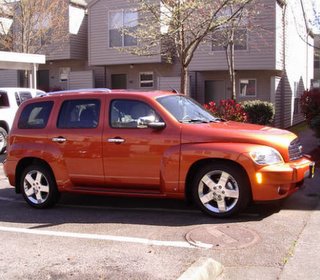
Rita and I did a lot of research (and a lot of test-driving), and we decided to get a 2006 Chevy HHR, sunburst metallic orange. For the uninitiated, the HHR is a retro-roadster, styled after a 1947 wagon. Kind of like a PT Cruiser, only vastly superior in nearly every way (I s hould know, I test-drove 'em both).
hould know, I test-drove 'em both).
The HHR gets respectable mileage for an un-sensible looking car, it's sturdily-and-safely-built, versatile, cool-looking, and the ride is the automotive equivalent of a soak in a hot tub; smooth and comfy. The wife, the dog, and I all give it an enthusiastic thumbs-up.
Most importantly, however, the new vehicle's audio system kicks serious ass. The hell with the side impact airbags; I'm in Music Nerd Heaven with every commute.
The Hornet's car stereo consisted of an AM/FM radio, and a two-sided cassette player. One side of said deck played like watery death, and the machine resolutely refused to rewind or fast-forward tapes. The Taurus also possessed the original twelve-year old factory speakers (you could hear the paper cones rattle inside when you cranked it--a nice white-trash touch).
So I greeted our lovely new car's magnificent seven-speaker Pioneer CD player with a combination of awe and joy akin to a caveman discovering fire for the first time. It's roof-rattlingly terrific, and my Rip Van Winkly arse still thrills to the high-tech sensation of inserting a CD into the slot, and being able to zip from track to track with a push of a button on the steering wheel.
The stereo needed to be christened with CD's, of course, so through a combination of circumstance and master planning, the following recordings made the cut first: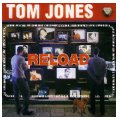
Tom Jones' Reload (gushed over previously on these electronic pages). The first CD to grace the new car's sound system. Hearing The Man's Mountain-of-God baritone in crystalline seven-speaker glory is like seeing Lawrence of Arabia for the first time on a 70mm cinema screen after watching it for years on a 12" black-and-white TV. A mutual programming choice.
David Bowie, Hunky Dory: Perhaps the finest longplayer ever from a man who's put out more diverse and essential platters than any twelve normal artists. We spun the Ryko reissue, with its slew of bonus tracks. Mutual Choice.
a man who's put out more diverse and essential platters than any twelve normal artists. We spun the Ryko reissue, with its slew of bonus tracks. Mutual Choice.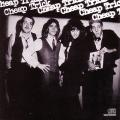 Cheap Trick: their first, um, five albums, lovingly remastered and reissued with heaps of extra tracks by Epic Records--a Me choice to rock the sunroof off. My delusional wife somehow can't understand that Cheap Trick are the best American rock band of the seventies, and one of the most influential outfits ever. Yeah, I'll hammer home this topic with my customary windy tenaciousness in a future Blog...
Cheap Trick: their first, um, five albums, lovingly remastered and reissued with heaps of extra tracks by Epic Records--a Me choice to rock the sunroof off. My delusional wife somehow can't understand that Cheap Trick are the best American rock band of the seventies, and one of the most influential outfits ever. Yeah, I'll hammer home this topic with my customary windy tenaciousness in a future Blog...
Meat Loaf, Rock and Roll Dreams Come Through CD single: selected by the missus for its 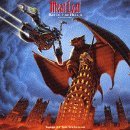 three--count 'em, three--mixes of the arena-rock megahit, "I Would Do Anything for Love". Rita lives for the Loaf's irrepressably hammy brand of pomp rock; I gotta cop to a guilty fondness for the stuff, too. Jim Steinman's overflowing chocolate sundae songwriting and production is tailor-made for a big-ass sound system, dude.
three--count 'em, three--mixes of the arena-rock megahit, "I Would Do Anything for Love". Rita lives for the Loaf's irrepressably hammy brand of pomp rock; I gotta cop to a guilty fondness for the stuff, too. Jim Steinman's overflowing chocolate sundae songwriting and production is tailor-made for a big-ass sound system, dude.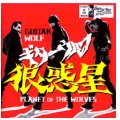 Guitar Wolf, Planet of the Wolves: Nothin' squeezes every last drop of LOUD out of a stereo like Japan's mightiest garageabilly monsters. Mutual choice.
Guitar Wolf, Planet of the Wolves: Nothin' squeezes every last drop of LOUD out of a stereo like Japan's mightiest garageabilly monsters. Mutual choice.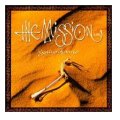 The Mission UK, Grains of Sand: Mostly a Rita choice, but I dig 'em, too. For all the Mish's faults, their combination of U2-gone-dark guitar swirliness and high melodrama sounds mighty sweet on a real stereo. Wayne Hussey's cavernous baritone makes him perhaps Britpop's ultimate mack daddy of the eighties: Barry White for Goth chicks.
The Mission UK, Grains of Sand: Mostly a Rita choice, but I dig 'em, too. For all the Mish's faults, their combination of U2-gone-dark guitar swirliness and high melodrama sounds mighty sweet on a real stereo. Wayne Hussey's cavernous baritone makes him perhaps Britpop's ultimate mack daddy of the eighties: Barry White for Goth chicks.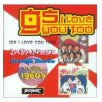 GS I Love You Too: A terrific compilation of mid-'60's Japanese Guitar Sounds (garage rock) from Big Beat Records. Spunky, catchy as hell, joyously energetic, and perfect for a retro-styled vehicle. Mutual choice.
GS I Love You Too: A terrific compilation of mid-'60's Japanese Guitar Sounds (garage rock) from Big Beat Records. Spunky, catchy as hell, joyously energetic, and perfect for a retro-styled vehicle. Mutual choice. Isaac Hayes, Ultimate Isaac Hayes--Can You Dig It? (two-disc set): He's a bad mutha; shut yo' mouth and give in to the liquid grooves of Black Moses, back before he became one with the evil hordes of Xenu. Any human being behind the wheel of a new car instantly transforms into a penultimate badass when the theme from Shaft chugs onto a good sound system. Mutual Choice.
Isaac Hayes, Ultimate Isaac Hayes--Can You Dig It? (two-disc set): He's a bad mutha; shut yo' mouth and give in to the liquid grooves of Black Moses, back before he became one with the evil hordes of Xenu. Any human being behind the wheel of a new car instantly transforms into a penultimate badass when the theme from Shaft chugs onto a good sound system. Mutual Choice. Pulp, We Love Life: Jarvis Cocker was, arguably, the best pop lyricist to emerge from Britain in the '90's, and this excellent record wraps his tart, neurotically urbane wit around a lushly organic production by cult icon Scott Walker. Me Choice.
Pulp, We Love Life: Jarvis Cocker was, arguably, the best pop lyricist to emerge from Britain in the '90's, and this excellent record wraps his tart, neurotically urbane wit around a lushly organic production by cult icon Scott Walker. Me Choice.
Great as it is to spin one's own tuneage on the car stereo, though, XM Satellite Radio (three free months of which came with the new ride) has seriously cut into our CD-listening time. If you're a music addict, Satellite Radio is some seriously high-grade Black-Tar heroin.
Before getting a free hit of this Sonic Smack, I thought of satellite radio as another arm of the Evil Empire that is corporate media (I know, like regular FM radio isn't the same damned thing). If the powers behind XM really are just Big Corporate Pawns, though, they're sure doing something right. XM features about 200 different channels, each with a specific format--there are the obligatory 'Decades' channels (i.e, Forties music, Fifties music, Sixties music, etc.), as well as genre-centric spots on the dial like blues stations, world music, alternative rock, etc.
The clincher here is that the people (or machines) programming these channels deliver an impressively dense collection of material on each channel. Rather than inundate its airwaves, for example, with the same eighteen 'classic oldies' that've been beaten to death eight times over by FM oldies stations, XM's Sixties on 6 pulls out lesser-known tracks by familiar figures--it's a kick to hear a great pop song by The Turtles that's NOT "Happy Together"--and original, full-length versions of better-known hits (The Chambers Brothers' "Time Has Come Today", with its full-length psychedelic freak-out guitar solo). Their many other formatted stations follow a similarly carefully-crafted and off-the-beaten track path.
In my first hour of XM, I heard Leadbelly, German metal mavens Accept (doing the thuggishly brilliant '84 headbanger, "Balls to the Wall"), a French punk rock band called Wide Load, excerpts from Rogers and Hammerstein's South Pacific, Alien Sex Fiend, Kay Kyser, a prime bit of vintage blaxploitation soul from Willie Hutch's soundtrack for Foxy Brown, The Bee Gees, Bill Monroe, and The Prisonaires, all with a quick twist of the dial. Unless you catch an indie/college radio station like Seattle's KEXP on a really good night, you will never, ever get this type of diversity out of the mainstream FM radio bandwidth.
XM, like any good dope peddler, counts on free samples to get folks hooked. And when they ask us for real money, you can bet Rita and I will be hocking most of our earthly goods (excepting the car, natch) to keep that spike in our veins.


Comments